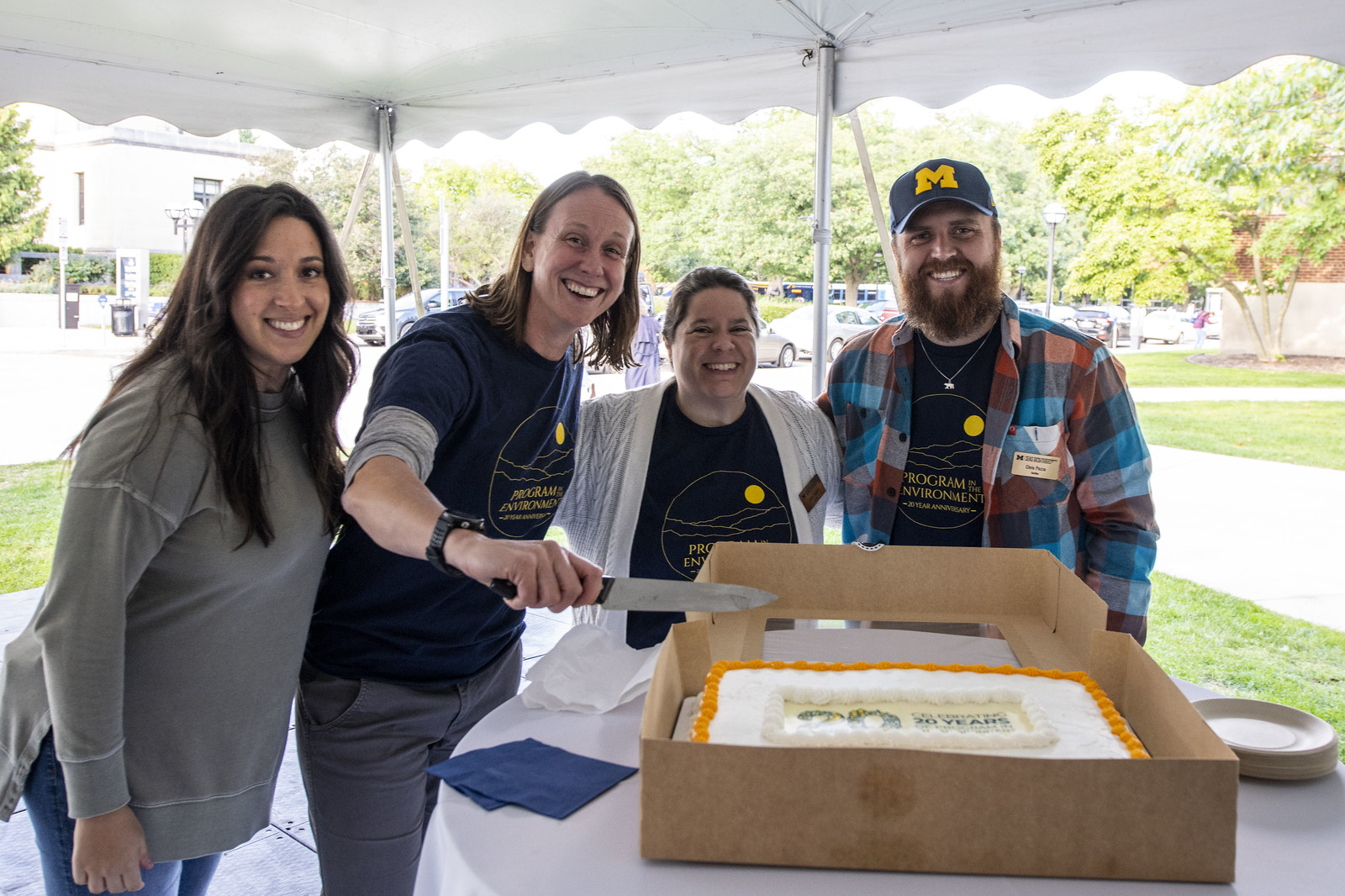
Program in the Environment Celebrates 20 Years
By Shelie Miller
This fall, the Program in the Environment (PitE) is celebrating its 20th anniversary. PitE Director Shelie Miller, who is also the Jonathan W. Bulkley Collegiate Professor of Sustainable Systems and a U-M Distinguished Faculty Fellow in Sustainability, shares the program’s history and focus.
The natural sciences have been well represented on the University of Michigan’s campus since the early 20th century. Nevertheless, the environmental movement of the 1960s that prompted the first Earth Day in 1970 catalyzed new directions in environmental curricula. SEAS, which was then called the School of Natural Resources, offered a BS degree in natural resources that focused on environmental science. Meanwhile, the Residential College, which is housed within the College of Literature, Science and the Arts (LSA), also began introducing interdisciplinary environmental courses. Interest in these programs continued to grow as greater numbers of faculty and students across campus became more involved in studying environmental problems. In 1992, the cross-campus initiative focused on global change was launched, which developed innovative and interdisciplinary undergraduate coursework and a minor that integrated the science of global environmental change with strategies for effective economic development and resource management.
"What started as a relatively small undergraduate program of 50 students has flourished over the past 20 years, with an undergraduate population of approximately 350 majors and 350 minors.”
PitE was formed in 2002, in part to help coalesce and synergize the various environmental undergraduate offerings on campus. As a jointly managed degree program between SEAS and LSA, PitE offers students a broad liberal arts major that emphasizes critical thinking, problem-solving, communication and forming connections across a range of topics and disciplines. Over the years, PitE has developed four additional minors in sustainability, food, energy science and policy, and water to the original environment major and minor. The PitE curriculum also offers students a wide variety of coursework and experiences to pursue their passion for environmental issues. Students have taken courses at the U-M Biological Station and Camp Davis, studied abroad in locations ranging from Tanzania to New Zealand, and spent semesters in Detroit and Washington, D.C.
What started as a relatively small undergraduate program of 50 students has flourished over the past 20 years, with an undergraduate population of approximately 350 majors and 350 minors. Faculty associated with the program have also grown tremendously over the past two decades; over 50 faculty are now affiliated with PitE. Showcasing its reach and breadth, PitE has faculty that are jointly appointed in six schools and colleges across the university (SEAS, LSA, Engineering, Public Health, Urban Planning, and Art and Design) from 14 different disciplinary units.
Let’s raise our reusable water bottles to another 20 years of PitE!
View our Flickr photo galleries. Above: Photos of PitE students from the past 20 years. Below: Photos from the PitE 20th anniversary celebration in September.



